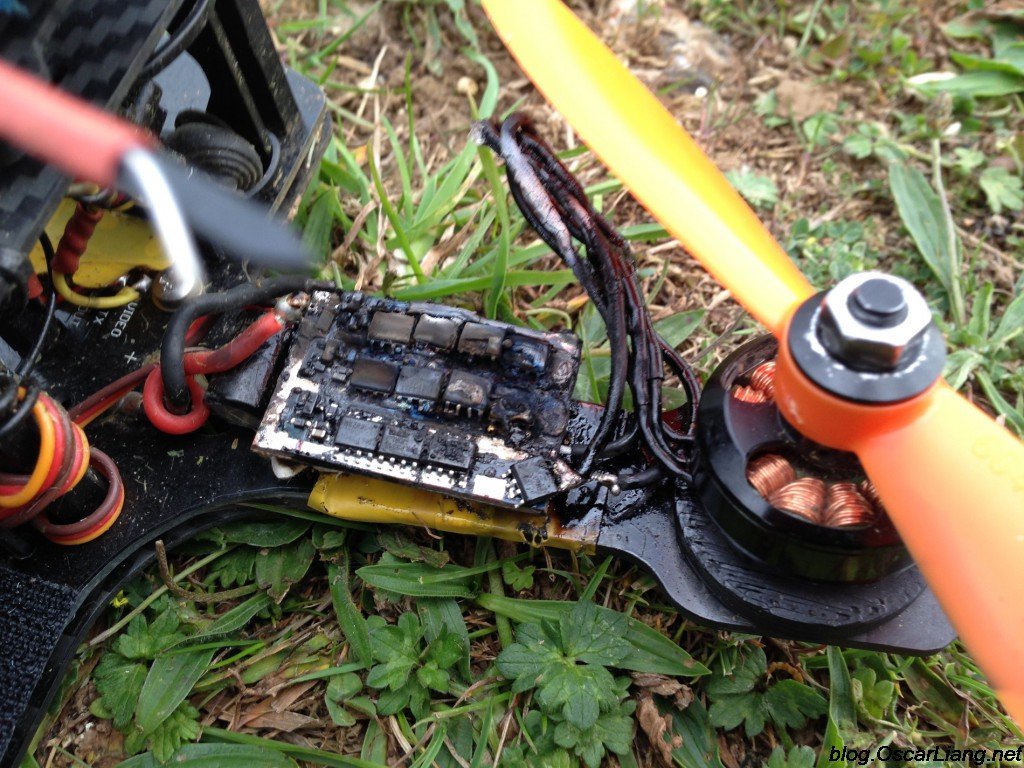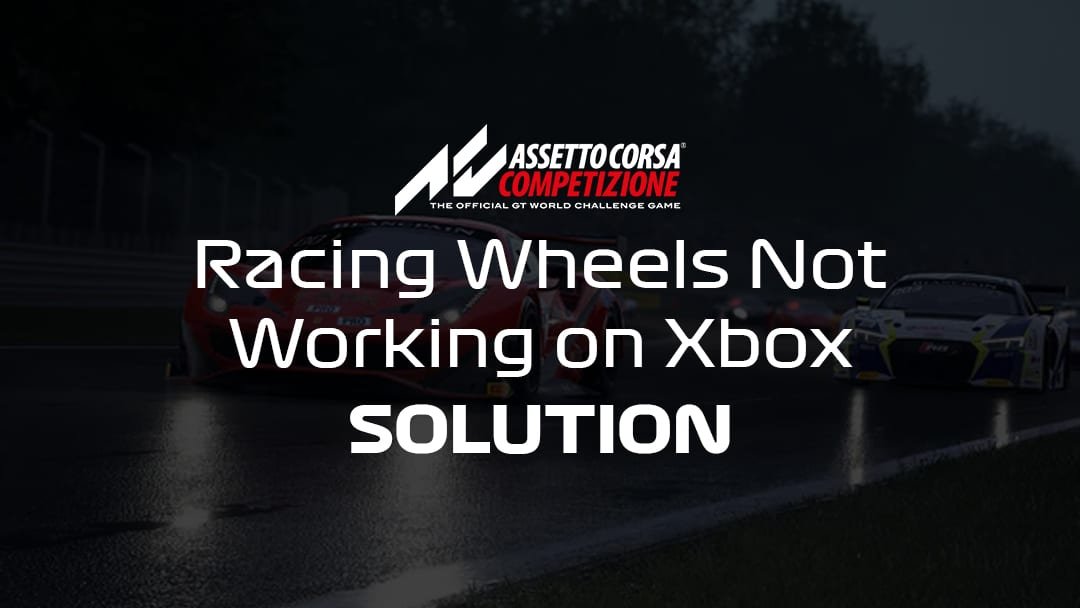RC motors and ESCs burn up due to various reasons. Understanding these causes can help you prevent damage.
Have you ever wondered why your RC motor or ESC suddenly stops working? This can be frustrating, especially when you’re in the middle of an exciting race or flight. The good news is, knowing the common reasons for these burnouts can help you avoid them.
Factors like overheating, overloading, and poor quality components often play a role. In this blog, we’ll explore the main causes of RC motor and ESC failures. By the end, you’ll have a better understanding of how to keep your RC vehicles running smoothly and efficiently. So, let’s dive in and learn how to protect your RC gear from burning up!
Introduction To Rc Motors And Escs
Remote Control (RC) vehicles are a fascinating hobby, but why do their motors and Electronic Speed Controllers (ESCs) sometimes burn up? Understanding this can save you from frustration and extra expenses. Let’s dive into the basics of RC motors and ESCs, and why they might fail.
Importance In Rc Vehicles
RC motors and ESCs are the heart and brain of your RC vehicle. Without them, your vehicle wouldn’t move. They work together to convert electrical energy into mechanical energy, powering your car, boat, or plane.
The motor is responsible for driving the wheels or propellers, giving your RC vehicle its speed and agility. The ESC manages the power supply to the motor, ensuring smooth acceleration and control. Together, they determine how your RC vehicle performs.
Basic Functionality
RC motors come in two main types: brushed and brushless. Brushed motors are simpler and cheaper but less efficient. Brushless motors, on the other hand, offer better performance and longevity. However, they require a matching ESC to function correctly.
The ESC regulates the power flow from the battery to the motor. It controls the speed, direction, and braking of your RC vehicle. A high-quality ESC can handle more power and provide smoother control, reducing the risk of burnout.
But why do these components burn up? Overloading and overheating are common causes. If you push your motor and ESC beyond their limits, they can overheat and fail. Choosing the right combination of motor and ESC for your RC vehicle is crucial to avoid these issues.
Have you ever experienced a burnt-out motor or ESC? It can be frustrating. Share your stories and tips on how you prevent this from happening. Let’s learn from each other and keep our RC vehicles running smoothly!
Overloading The Motor
RC motors and ESCs burning up can often be traced back to overloading. Overloading the motor is a common issue that affects many RC enthusiasts. Understanding the causes and taking preventive measures can save your equipment from damage.
Causes Of Overload
Several factors can cause motor overload. One major cause is using a motor that is too small for the vehicle. The motor works harder than it should, leading to overheating. Another cause is running the motor at high speeds for extended periods. This strains the motor and generates excessive heat. Poor ventilation can also trap heat, causing the motor to overheat.
Preventive Measures
To prevent motor overload, choose the right motor for your vehicle. Make sure the motor can handle the vehicle’s size and weight. Avoid running the motor at high speeds for too long. Give it a break to cool down. Ensure proper ventilation around the motor. This helps in dissipating heat effectively.
Regular maintenance is essential. Clean the motor and ESC to remove dirt and debris. This ensures smooth operation and reduces the risk of overheating. Using a temperature sensor can help monitor the motor’s temperature. If the motor gets too hot, shut it down immediately.
Inadequate Cooling
RC motors and ESCs often burn up due to inadequate cooling. Efficient cooling is crucial for maintaining the longevity and performance of these components. Without proper cooling, heat accumulates, leading to damage. Let’s explore the main issues related to heat dissipation and potential cooling solutions.
Heat Dissipation Issues
Many RC enthusiasts face heat dissipation issues. Motors and ESCs generate substantial heat during operation. If this heat is not effectively managed, it can cause components to overheat and burn up. Poor ventilation and high ambient temperatures exacerbate the problem.
Insufficient airflow can trap heat around the motor and ESC. This trapped heat increases the temperature, risking damage. Heat sinks or fans often fail to provide adequate cooling in these conditions. Ensuring proper placement and ventilation is essential.
Cooling Solutions
Effective cooling solutions can prevent overheating. One method is using high-quality heat sinks. These help in dissipating heat efficiently. Fans can also be added to increase airflow around the motor and ESC.
Proper ventilation is vital. Ensure there are enough openings to allow air to circulate. Using thermal paste between components can improve heat transfer. Regular maintenance, such as cleaning dust and debris, helps keep cooling systems effective.
Monitoring temperatures during operation can alert users to potential issues. If temperatures rise too high, taking immediate action can prevent damage. Investing in cooling solutions and regular monitoring ensures long-term performance and reliability.

Credit: www.amazon.com
Improper Gear Ratios
Improper gear ratios can cause RC motors and ESCs to overheat. This leads to burnt components and costly repairs. Using the correct gear ratio is essential to avoid damage.
Improper gear ratios are a common reason why RC motors and ESCs burn up. If you are not careful with the gear ratios in your RC vehicle, you might face overheating issues. This can lead to permanent damage to your motor and ESC. Let’s explore how improper gear ratios impact motor performance and how to select the optimal gear ratio for your RC vehicle.Impact On Motor Performance
The gear ratio directly affects the motor’s performance. If the gear ratio is too high, the motor has to work harder to move the vehicle. This increases the load on the motor, causing it to draw more current.When the current draw exceeds the motor’s capacity, it generates excessive heat. This heat can cause the motor to burn out. Have you noticed your RC vehicle slowing down and the motor getting hotter? This might be due to an improper gear ratio.On the other hand, if the gear ratio is too low, your RC might lack the speed you desire. While this might prevent overheating, it compromises performance. Therefore, finding the right balance is crucial.Optimal Gear Ratio Selection
Selecting the optimal gear ratio is essential for both performance and longevity. Start by checking the manufacturer’s recommendations for your specific motor and ESC. These guidelines provide a good starting point.Next, consider your driving conditions. For instance, if you’re driving on a track with many turns, a lower gear ratio might be beneficial. It will give you better acceleration out of corners. However, for straight-line speed, a higher gear ratio might be better.Experiment with different gear ratios while monitoring the motor’s temperature. If the motor gets too hot, you need to adjust the ratio. Always ensure that after a run, the motor is warm to the touch but not scorching hot.Have you ever burned out a motor due to improper gear ratios? Share your experience in the comments below. Remember, the right gear ratio can save you time, money, and frustration.Poor Quality Components
Low-quality components often cause RC motors and ESCs to burn up. Cheap materials fail under stress, leading to overheating and damage. Investing in better parts prevents these issues.
Poor quality components are one of the leading reasons why RC motors and ESCs burn up. When you invest in cheap parts, you might save money initially, but the long-term damage can be costly. Compromising on quality can lead to underperformance and unexpected failures.Risks Of Low-quality Parts
Using low-quality parts can be a ticking time bomb. Inferior materials often can’t handle the heat and stress of high-speed runs. This can result in burnt-out motors and fried ESCs.You might experience inconsistent performance. Your RC vehicle might suddenly lose power or stop working altogether. This unpredictability can ruin your experience and even lead to accidents.Manufacturers of cheap components may cut corners in their production processes. This could mean inadequate insulation, poor soldering, and substandard quality control. These factors collectively increase the chances of catastrophic failures.Choosing Reliable Brands
Opt for brands with a proven track record. Well-known manufacturers invest in quality assurance to ensure their products perform reliably.Seek out user reviews and community feedback. Enthusiast forums and RC groups can offer valuable insights into which brands are trustworthy.Consider the warranty and customer support. Reliable brands often stand behind their products with good warranties and responsive support.Investing in quality components might seem expensive upfront. But it saves you from the headache of frequent replacements and potential damage to other parts.Have you ever faced issues with low-quality components? Share your experiences in the comments below.Incorrect Esc Settings
Incorrect ESC settings can lead to burnt-out RC motors and ESCs. Many hobbyists overlook the importance of proper configurations. This oversight can result in costly damages and reduced performance.
Common Setting Errors
One common error is incorrect motor timing. This can cause excessive heat buildup. Another mistake is setting the wrong voltage cutoff. This puts extra stress on the ESC and motor. Incorrect throttle calibration can also lead to inefficiencies and overheating. These errors are easy to make but have serious consequences.
Proper Configuration Tips
First, always check the motor timing settings. Match them to the motor’s specifications. Second, set the voltage cutoff according to your battery type. Properly calibrate the throttle range for smooth and efficient power delivery. Regularly update your ESC firmware to benefit from performance improvements. Double-check all settings before running your RC vehicle.
Electrical Short Circuits
Overheating in RC motors and ESCs often results from electrical short circuits. This can damage the components quickly. Proper wiring and insulation help prevent such issues.
Electrical short circuits are one of the most common reasons why RC motors and ESCs burn up. These shorts can cause severe damage in a matter of seconds. Understanding why short circuits happen and how to prevent them is crucial for any RC enthusiast.Common Causes Of Shorts
Short circuits often occur due to damaged wires. If your RC vehicle crashes, the impact can strip the insulation off the wires, causing them to touch and create a short circuit.Another common cause is poor soldering. Inadequate or sloppy soldering can lead to loose connections that may short out when the vehicle is in use.A personal experience: I once had my RC car’s ESC burn up because I didn’t properly secure the wires. They came loose, touched each other, and created a short circuit. I learned the hard way that secure connections are vital.Preventing Short Circuits
To prevent short circuits, always inspect your wires for any damage. Replace or repair any wires with exposed metal to avoid accidental contact.Use heat shrink tubing on all soldered connections. This extra layer of insulation can save you from costly repairs.A thought-provoking question: Have you ever checked the quality of your soldering? Poor soldering is a silent killer for RC motors and ESCs.Additionally, secure all wires properly. Use zip ties or clips to keep them in place. This simple step can prevent wires from moving around and causing shorts.Regular maintenance is key. Make it a habit to inspect your RC vehicle after every use. This can help you spot any potential issues before they become major problems.By following these practical tips, you can significantly reduce the risk of electrical short circuits, keeping your RC motors and ESCs in top shape. So, what’s your next step? Will you inspect and secure your wires today?
Credit: www.facebook.com
Maintenance And Care
Taking care of your RC motors and ESCs is essential. Proper maintenance can extend their life. It also ensures better performance. Neglecting care can lead to burnouts and costly repairs. Regular checks and proper storage are key.
Regular Inspection Tips
Check your RC motors and ESCs often. Look for signs of wear and tear. Inspect the wiring for any damage. Loose wires can cause shorts. Also, check for any unusual noises. Strange sounds can indicate problems inside the motor.
Cleaning And Storage
Clean your motors and ESCs after each use. Remove any dust or debris. Use a soft brush or compressed air. Dirt can cause overheating. Also, keep them dry. Moisture can damage the components.
Store your RC motors and ESCs in a cool, dry place. Avoid direct sunlight. Heat can degrade the materials. Use a protective case if possible. This will keep them safe from physical damage.

Credit: www.amazon.com
Frequently Asked Questions
What Causes Esc To Overheat?
ESCs overheat due to excessive current, poor ventilation, incorrect gear ratios, or using incompatible motors. Ensure proper cooling.
Can Esc Burn Out A Motor?
Yes, an ESC can burn out a motor if improperly configured or overloaded. Proper settings and usage prevent damage. Always follow manufacturer guidelines.
Why Do Electric Motors Burn Up?
Electric motors burn up due to overheating, electrical faults, poor maintenance, or excessive load. Regular inspection prevents damage.
Why Does My Esc Keep Cutting Out?
Your ESC might be cutting out due to overheating, low battery voltage, or poor connections. Check for loose wires and ensure proper cooling.
What Causes Rc Motors To Burn Up?
RC motors burn up due to overheating, overloading, or poor ventilation.
Conclusion
Rc motors and ESCs burn up due to various reasons. Improper installation, excessive load, and poor ventilation are key factors. Regular maintenance helps prevent these issues. Always ensure proper cooling and follow manufacturer guidelines. Choosing quality components also reduces risks.
Understanding these factors can save your RC motors and ESCs from damage. Take care and enjoy a smoother RC experience.






